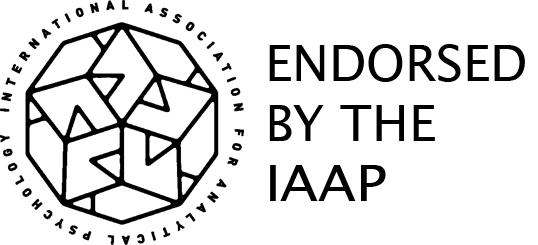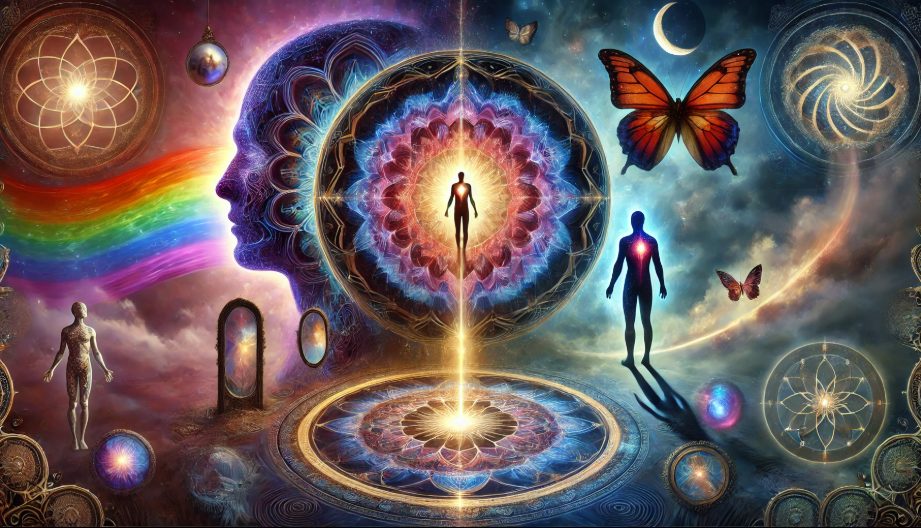This issue of Psychological Perspectives titled Queer Jungian Voices, offers a rich exploration of gender, sexuality, and identity, featuring a diverse array of articles, poetry, and reviews. Guest editor Marybeth Carter opens with Perspective: Queer Jungian Voices, setting the stage for the issue’s focus on queer perspectives in analytical psychology, followed by her Special Thanks, acknowledging contributors.
From the C. G. Jung Institute of Zürich’s 75th Anniversary Conference, Liz Brodersen, Art Funkhouser, Isabelle Meier, and Valeria Céspedes Musso co-author Perspectives from the C. G. Jung Institute of Zürich 75th Anniversary Conference Organizers, reflecting on the event’s significance. Marybeth Carter’s LGBTQI+ Soul Psychology: A Model of Personal Narrative proposes a framework for understanding queer identity through soul-centered narratives, while Douglas Thomas’s Jung and the Queer Dialectic: A Heretical Tradition examines Jung’s theories in a queer context, highlighting their subversive potential. José María Jiménez Orvañanos’s How to Not Be Like a Girl: A Queer Therapist’s Dance with Shame delves into personal and therapeutic struggles with shame, and Sara M. Sage’s The Feminine as an Energetic Principle for Jungian Work with Transgender and Nonbinary Clients explores the feminine archetype in therapy with gender-diverse individuals. George Taxidis’s Living Your Animal: Listening to Wild Gender and Sexuality (open access) connects primal instincts to queer identity, and James Perrin’s The Animum: Making the Anima and Animus Theories of Jungian and Post-Jungian Psychology Fully Queer-Compatible reimagines Jung’s anima/animus concepts for inclusivity. Naomi Azriel’s The Non-Binary Soul: Growing Towards a Liberatory Jungian Gender Stance advocates for a non-binary approach to the psyche.
The issue shifts to Latin American perspectives with Andy Arocha’s Art on Individuation: Artistic Creation and Creative Inspiration in Jung’s Ideas, linking art to Jungian individuation, and Fran Ruggiero Alfaro’s Becoming-Psychotherapist: A Micropolitical Struggle with Jungian Theory in Lima, Peru, exploring the challenges of applying Jungian theory in a Peruvian context. Gustavo Pessoa’s The Heteropatriarchal Complex: A Queer Jungian Perspective on Gender and Sexuality critiques societal norms through a Jungian lens, and Valeria Kierbel’s To(o) Queer the Analyst: Lesbiana, Junguiana and Sudamericana. Towards Woven Onto-Epistemologies blends lesbian and South American identities with Jungian thought.
Artistic contributions include Samuele Russo’s poem Earth Body, Queer Body: LI-MO-NE and Gareth Prosser’s pictorial work of the same name, both celebrating queer embodiment. In emerging thought, Marybeth Carter’s A Contemporary Overview of Gender and Sexuality in Analytical Psychology surveys current trends, complemented by her interview Let Go of Identity and Embrace Complexity: An Interview with John Beebe, Jungian Analyst, discussing complexity in identity with analyst John Beebe. Poetry by Ames Carpenter (Two Principles of Transilience) and Naomi Azriel (An Eyeful of Eternity) adds depth, while book reviews by Valeria Kierbel on Gloria Anzaldúa’s Light in the Dark/Luz en lo Oscuro and Robert H. Hopcke on Douglas Thomas’s The Deep Psychology of BDSM and Kink offer critical insights. Film reviews by Evalie Horner on Barbie (2023) and Gustavo Pessoa on Orlando: My Political Biography (2023) round out the issue. This issue weaves together scholarly, personal, and artistic threads to advance queer Jungian discourse.


